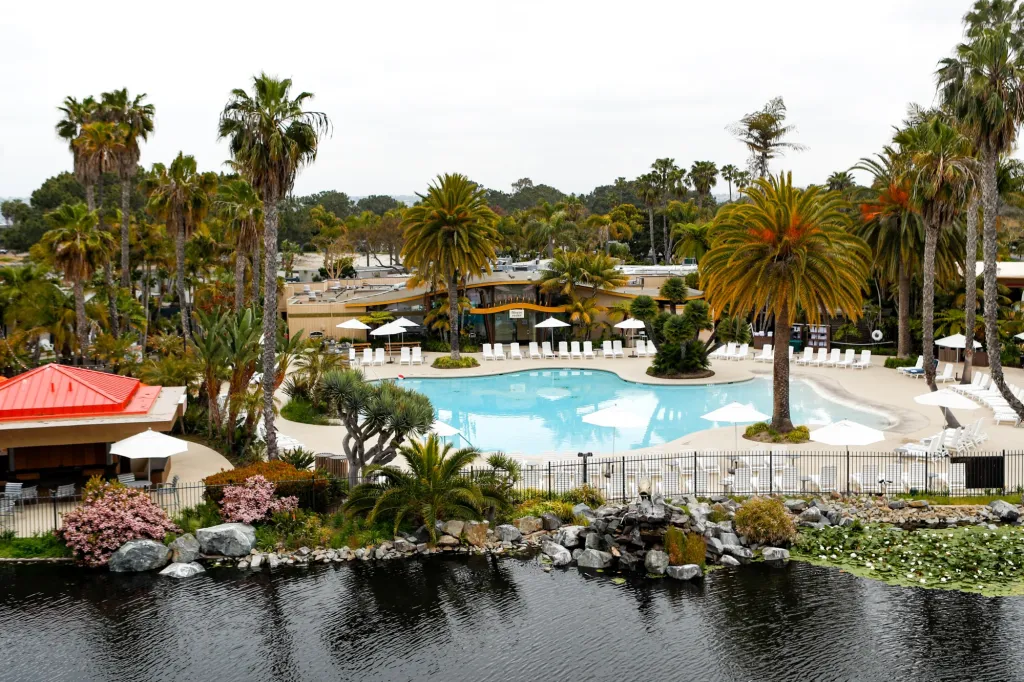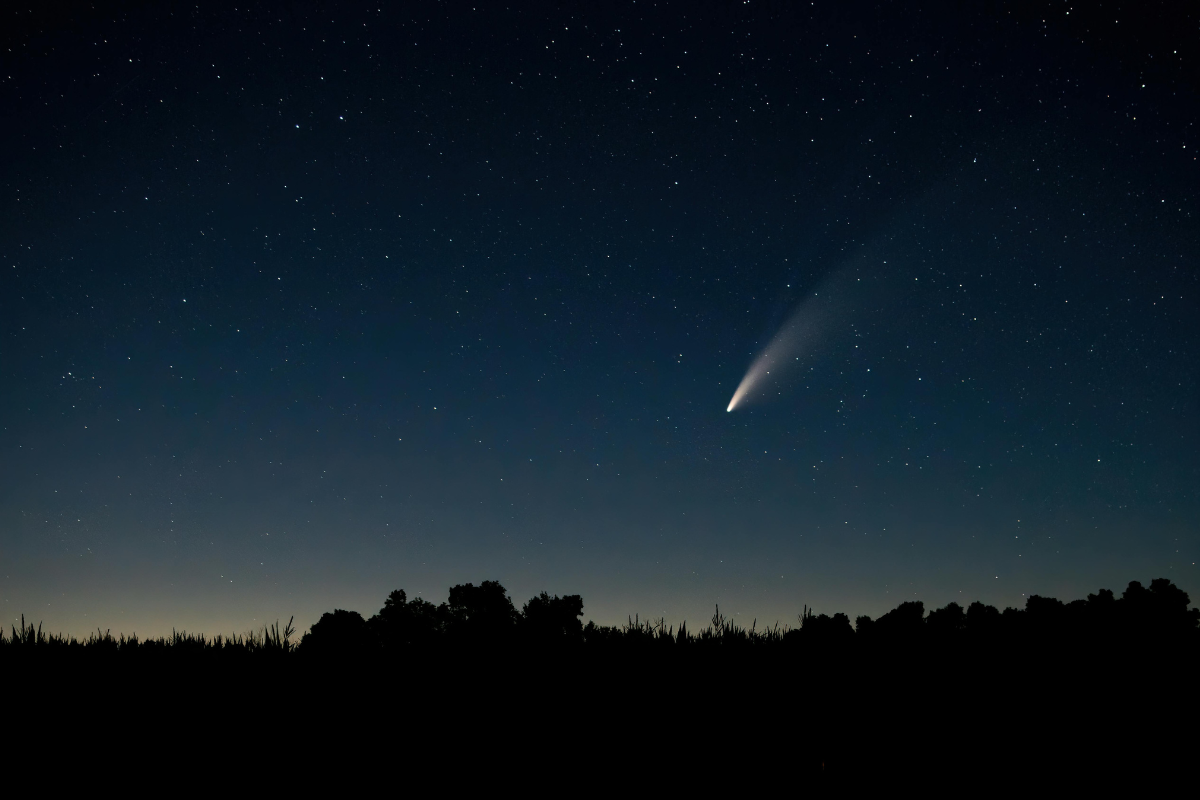Copyright San Diego Union-Tribune

Paradise Point resort, a popular vacation destination on Mission Bay for decades, secured approval Wednesday from the California Coastal Commission to move forward with a long-delayed renovation that is expected to cost tens of millions of dollars. The commission’s action comes more than two years after the resort ownership abruptly pulled its plans from commission consideration in the wake of strong opposition from local leaders and longstanding public access violations of the California Coastal Act. Months of negotiations with the commission’s enforcement staff ensued, leading to a landmark settlement that not only called for removing multiple impediments to public access around the island resort and shoreline, but also extensive new signage and other improvements designed to entice locals and out-of-towners to come inside the property and explore tranquil beach areas that are hidden from view and perceived as open only to resort guests. In recent years, the resort, which dates back to 1962, has grown tired and is in need of upgrades to not only boost flagging hotel occupancy but also make it more appealing to the public, said Dave Danieli, Senior Vice President of Asset Management for Pebblebrook Hotel Trust, which acquired Paradise Point in 2018. “When I first came to this project, I looked around and thought, wow, this was great once and now people don’t come here anymore,” Danieli told the commissioners. “… I think we have an opportunity to really create something special that will be a fantastic amenity for the local area and bring people back to htis island that has really been forgotten about.” Although no additional guestrooms are planned, Pebblebrook proposes to remodel the 462 casita-style rooms; update restaurants; add a bar and outdoor patio to its lobby area; install a floating bridge over a man-made lagoon near its pool-side restaurant, Tropics Cantina; construct a 10,000-square-foot outdoor event tent; and fill in a portion of an unpermitted artificial lagoon that will result in 5,640 square feet of additional outdoor dining for the iconic Barefoot Bar. Pebblebrook also plans to convert the resort’s artificial baywater lagoons into a fresh-water closed system aimed at improving water quality in the bay. It will rebuild a marina with new decking, an ADA gangway and human lifts so that those with mobility issues can go fishing. While the original plans, dating back to 2019, were estimated to cost $35 million, no updated estimate has been calculated, nor is there a precise timeline for moving forward, said Raymond Martz, chief financial officer for Maryland-based Pebblebrook. “It’s too early to comment on the total cost until we’ve had a chance to rescope and reprice the project,” Martz told the Union-Tribune. “We’ve been working closely with the California Coastal Commission since 2018 to address their questions, and we appreciate their collaboration throughout this process. That said, there’s still significant uncertainty around the tariff environment that could impact the project’s final scope and cost. “We’ve been involved in this approval process for seven years. It could take another seven years for all we know.” As part of Pebblebrook’s agreement with the Coastal Commission to resolve years of violations — some of which predate the company’s ownership — the resort already has installed over 100 new required signs highlighting coastal access, paid a $1 million penalty, implemented a plastic pollution prevention plan, launched a multi-year science education and family vacation program for underserved students and families, and completed an uninterrupted pathway across the three-quarter mile length of the bayfront within the site leased from the city of San Diego. The many provisions of the enforcement action and agreement are incorporated as special conditions into the approved application, and many must also be monitored. While the commission’s enforcement team has characterized the agreement as a success story, San Diego Mayor Todd Gloria’s office asked in two separate letters that the Coastal Commission hold off on approving the redevelopment project. In a letter sent just this week, Gloria argued that the city had not been adequately involved in the review and said that the project “goes well beyond the limited improvements and programs associated with the Resort’s Consent Order focused on public restrooms, comfort stations, public access plan, education programs, and some other elements.” In particular, Gloria’s office is concerned with what it calls a “flawed” parking study that does not take into consideration more intense uses at the resort, including the addition of a large event tent. Further, the city asserts, the study doesn’t address potential impacts on adjacent public parking lots. The letter is signed by Gloria, Council President Joe LaCava, and Councilmember Jennifer Campbell. The city also has raised concerns about certain components of the project that could conflict with its Environmentally Sensitive Lands regulations, like a pier reconstruction and floating dock plans for the marina. Coastal Program Analyst Lindsey Cain, in a presentation to commissioners, said she “respectfully” disagreed with the city’s positon that the parking study failed to account for the potential impacts of an event tent. The study, she said, was conducted in February of 2019 when a previous event tent was still operating and the hotel was 100 percent full, with concurrent events attracting as many as 750 attendees. Commissioner Jose Preciado, a Chula Vista Councilmember, was the lone no vote on the Paradise Point coastal development permit, saying he was troubled by the city’s concerns that it wasn’t involved enough in the review of the project. “My opposition comes from my acknowledgement that the local officials in this area either did not have enough information or enough understanding of their role in this process and as such sent communications to us on at least two occasions indicating they didn’t feel they were engaged in the review,” Preciado said. Although he voted in favor of the project, Commissioner Christopher Lopez said he too was concerned that the commission had received two letters of objection from Gloria. “But it’s also concerning that we’re sitting here today and they’re not in the room to share their concerns,” Lopez added. A separate letter sent by an attorney for Unite Here Local 30, the hotel workers union, also objected to the item moving forward and asked for more time for a city review, citing some of the same issues as the mayor’s office. “This should have gone first to the city before going to the Coastal Commission,” Unite Here President Brigette Browning said in an interview Wednesday. “They shouldn’t be usurping the city’s authority. Other times when applications like this have come before the city, the city has been able to negotiate a better lease deal. The city should be able to reopen the lease and negotiate better terms if they (Paradise Point) want to redevleop the property.” What remains unknown is whether the resort still plans to pursue a transition to a Margaritaville resort, a familiar Jimmy Buffet hotel and restaurant brand that is now in place at one of Pebblebrook’s other hotels, in downtown San Diego. Although the rebranding was originally announced in 2019, the transition never moved forward, and Martz said this week that no decision has been made yet on whether it’s still a viable plan.



